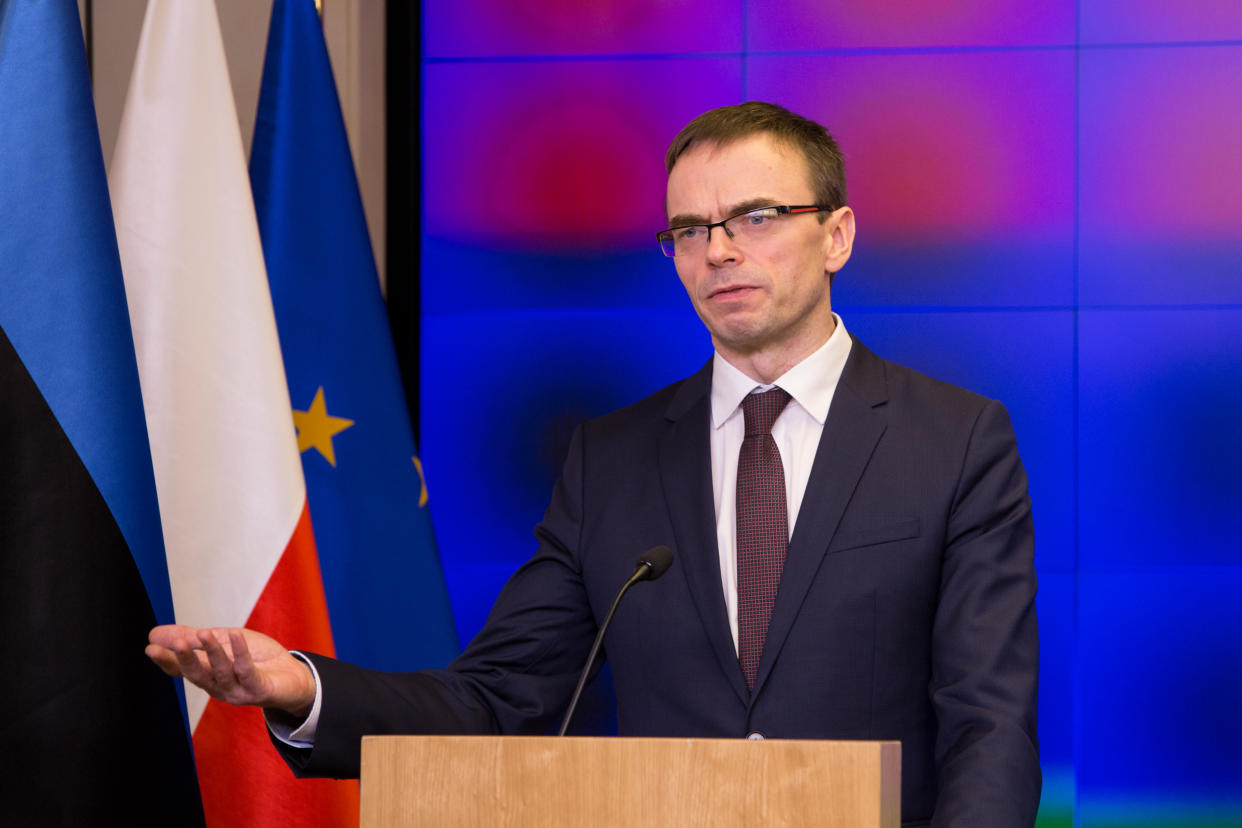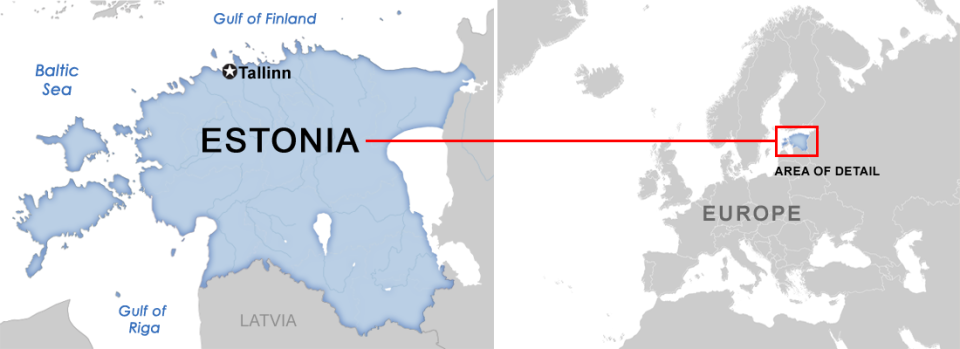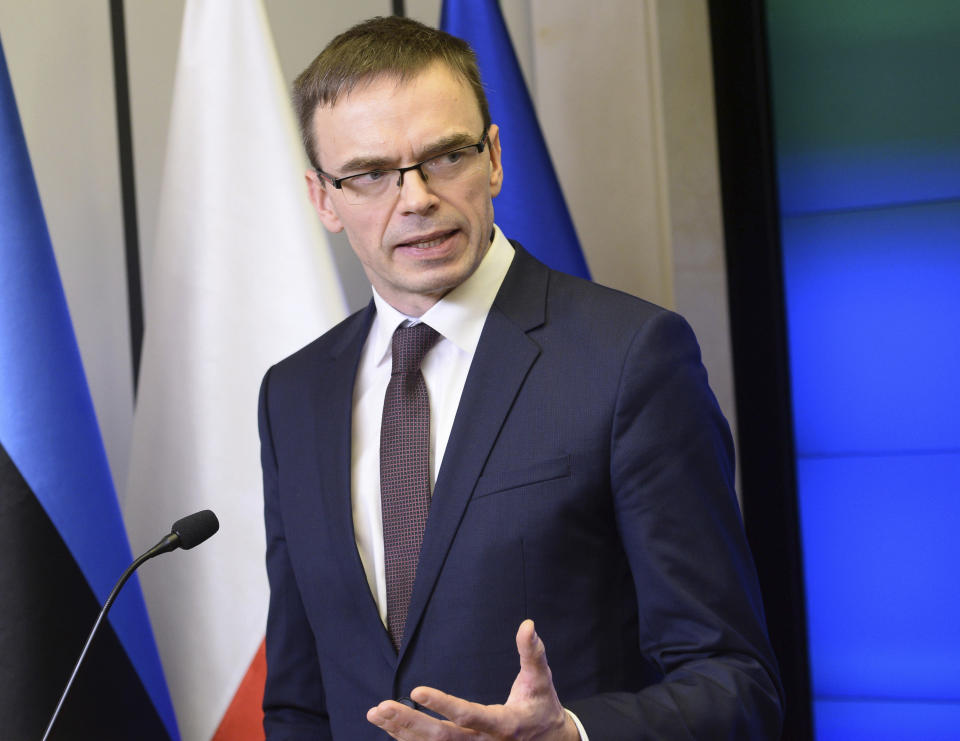Estonia's foreign minister describes the challenges diplomats face dealing with Trump

WASHINGTON — President Trump’s unpredictability has baffled and confounded journalists, members of Congress, political adversaries (such as advocates for immigrant rights) and allies (including most recently the National Rifle Association) and, not least, foreign governments. Now the foreign minister of a small but staunch American ally has described how he tries to keep up with current U.S. foreign policy, which can change without warning.
The assessment came from Sven Mikser, minister of foreign affairs for Estonia, a nation of 1 million people on Russia’s border, who spoke with reporters in Washington on Monday. Trump plans to meet next month with the president of Estonia and the other Baltic nations, Latvia and Lithuania, all former satellites of the Soviet Union.
“We have a rather unorthodox president … in the White House, and we should sort of predict some amount of unpredictability. So, we’ve seen the president saying something and then saying something different the next day,” Mikser told Yahoo News. “So … having seen that happen over and over during the last year and a bit, it’s something that we should build into our calculation. … We should be able to live with that.”
One area of concern for Estonia is Trump’s recent announcement that he plans to impose tariffs on imported steel and aluminum.
“We Estonians and, generally, I think, in our part of the world, small … Northern European countries, we are very much invested in promoting free trade,” said Mikser. “When you are a country with a domestic market of just one million people then, obviously, you’ll depend very heavily on your ability to trade freely.”
But, Mikser said, nothing that the American president does or says will change the essential basis of Estonian foreign policy, which is to ally itself firmly with the United States.
“We basically are determined to work with the U.S., irrespective of whether there’s more domestic political tension at any given moment in time or less,” said Mikser. “We are, basically — take it as it is, and are determined to make the best out of it.”
Mikser elaborated on how Trump’s approach is different from that of past presidents, whose foreign policy pronouncements were meticulously scripted. Trump has given speeches, he noted, where it seemed “pretty clear that he was, in big part, improvising.”

“If that happens, I don’t think that we should try to read and analyze it as if it was carefully scripted. That would be a mistake,” Mikser said, adding, “We are used to hearing speeches from the U.S. presidents that are very, very carefully scripted and that are meant to — each word, each comma, is meant to deliver a certain point. But when we see a president coming and making improvised address, then if we try to analyze it as if it was scripted, we might read some things into it that are not necessarily going to happen.”
Estonia, which regained its independence from the former Soviet Union in 1991, is concerned about Russian aggression and its attempts to interfere with elections in other countries.
“We’ve seen Russian attempts to interfere in … our democracy, elections, in our political life ever since we regained our independence. I wouldn’t say that we have grown used to it. Basically, we have grown to expect it,” Mikser said.
According to Mikser, Estonia would like to see an increased U.S. military presence in the Baltics. Mikser also said his country thought the sanctions that the United States and its Western allies imposed on Moscow after Russia’s 2014 annexation of Crimea were “very effective.” Trump’s administration has continued those measures, but has not imposed the new sanctions called for by Congress following Russia’s interference in the 2016 U.S. election. Mikser stopped short of calling for Trump to impose further sanctions on Russia.
“I’m not here to criticize the U.S. administration — or any of it, least the president. Basically, what we try to convince our American interlocutors of is that Russia continues to be an aggressive and not constructive player when it comes to the international politics, and therefore we should collectively build a stronger deterrence against it as possible,” he said.
Trump is facing a special counsel investigation into the relationship of his campaign with Russia during the 2016 election. The probe has included questions about a meeting at which Trump’s eldest son indicated that he was willing to work with Russia as Trump was running for president. Yahoo News asked Mikser if this worried him.
“There are a lot of things in the world that concern me,” Mikser said.
One concern, he said, is Britain’s impending departure from the European Union after the Brexit referendum. Mikser said Estonia, which is a member of the EU, did not welcome this outcome.
“I recognize that it’s not for me … it’s for the British people to make that decision … even if it’s the wrong decision from my perspective. I’m prepared to live with it,” said Mikser.
Asked if he thought the current environment constituted a new Cold War, Mikser didn’t answer directly, but said the present situation is “very different” from the period of estrangement between Western nations and the former Soviet Union after World War II.
“We have a changing sort of balance of power in the world. … We are definitely out of this sort of post-Cold War, Pax Americana, end of history, whatever it was,” Mikser said. “There are countries and rulers who are not happy with the current balance of power who are not happy with this … international order that was established after World War II and that was sort of rearranged a bit after the end of the Cold War. … Russia is among them. … The end of history has not yet arrived, and probably will not any time soon.”

Read more from Yahoo News:


